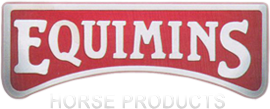How to clean and assess a wound
Finding out that your horse has injured himself is awful, especially if it’s a more serious injury. The best thing that you, his owner, can do, is to quickly assess the situation and take the correct action to maximise the chances of a speedy recovery.
First of all, assess the wound. Some wounds need immediate veterinary attention – profuse bleeding, eye injuries, tears that require stitches, wounds close to a joint or tendon, lameness on the injured limb and puncture wounds are just a few examples. If the wound is anything more than ‘minor’, if it’s not healing as expected or you’re concerned, it is always best to call the vet, even if it’s just for advice.
Assuming that the horse has a minor injury that doesn’t require veterinary attention, the wound must be cleaned thoroughly. In some cases, a hosepipe can be very useful, especially if the wound is very dirty. Ensure that the hosepipe is positioned above the wound to allow the water to pass over it and move away with the dirt. Cold hosing can also be useful if the horse has a knock or a bump to help reduce swelling.
Cleaning with cotton wool and water/suitable antiseptic from a bowl is ideal for minor wounds that aren’t very dirty. Use clean pieces of cotton wool each time you approach the wound to ensure you’re not rubbing dirt into it.
Cleaning the wound thoroughly is the first step in recovery and allows you to fully assess the depth/severity of the injury. It might be that, after cleaning the wound, you realise it’s worse than you initially thought and you need veterinary help. Alternatively, it might be much better than you think and it just appeared to be worse. Monitor all wounds closely and keep them clean…if you’re ever in doubt about your horse’s well being, call your vet.
What happens next depends on the type of wound…and even the time of year! Have a look at our first aid kit blog for our must-haves.

 Equimins specialises in producing natural horse supplies, products and supplements for the major areas associated with caring for a horse. All products are proudly made in the UK and excellent specification quality products are of paramount importance. Using this blog we want to share some of the knowledge we have gained through nearly 30 years of experience.
Equimins specialises in producing natural horse supplies, products and supplements for the major areas associated with caring for a horse. All products are proudly made in the UK and excellent specification quality products are of paramount importance. Using this blog we want to share some of the knowledge we have gained through nearly 30 years of experience. 


